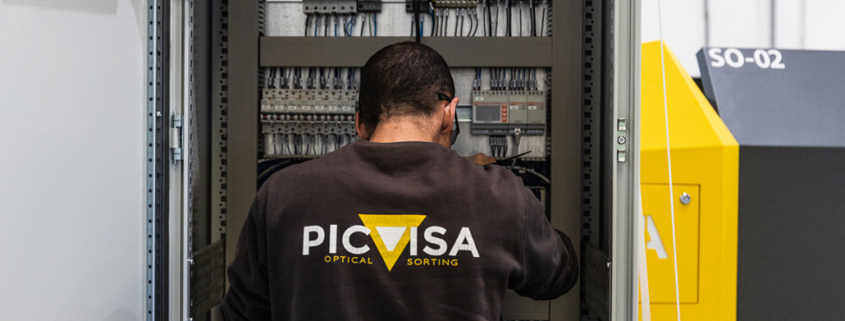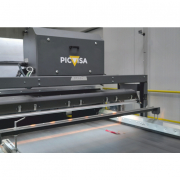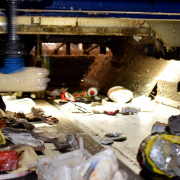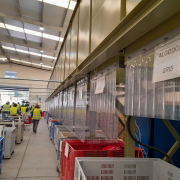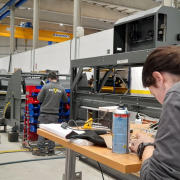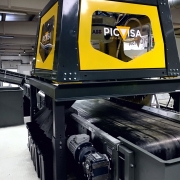Glass Recycling with Artificial Intelligence
The new Ecoglass equipment from PICVISA incorporates Artificial Intelligence (AI), enhancing glass sorting and optimizing the recycling process.
Spain-based PICVISA, a leading company in optical sorting solutions for recycling and waste management, integrates artificial intelligence (AI) in its Ecoglass system, the company’s optical sorting system for glass treatment in recycling plants. “This technology enables more precise separation of glass waste, increasing the recovery of recyclable material and minimizing waste,” the technical-based firm assured.
Glass is 100 percent recyclable and can be reused indefinitely without losing quality. However, only 78 percent of glass packaging is recycled in Europe, according to the European Container Glass Federation (FEVE). This means that millions of tons end up in landfills or are wasted in sorting processes each year. “The challenge lies in separating impurities such as ceramics, porcelain, or plastics, as well as identifying dark-colored glass, which is often excluded from the recycling stream. With the incorporation of AI in Ecoglass, recovery rates can be increased, and the quality of recycled glass can be improved, minimizing the amount of discarded material”, the internationally active Spanish provider of technical solutions underlined.
As stated by PICVISA, the key advantages of the new version include:
- Enhanced recovery of recyclable glass. AI reduces the loss of valuable material, helping to increase recycling rates and preventing more glass from ending up in landfills.
- Advanced detection of dark-colored glass. Through intelligent image processing, Ecoglass can identify and accurately classify dark-colored glass, which has traditionally been difficult to recover.
- Morphological identification of contaminants. AI distinguishes materials not only by color but also by shape, separating elements such as ceramics, plastics, or metals that can affect the quality of recycled glass.
- Reduced manual intervention and greater energy efficiency. AI optimizes decision-making in sorting, reducing the need for human intervention and minimizing equipment wear, leading to lower operational and maintenance costs.
- Self-learning and continuous adaptation. Thanks to the self-learning capabilities of its algorithms, the system improves its performance over time, adapting to new waste compositions and increasing its precision.
(Published in GLOBAL RECYCLING Magazine 1/2025, Page 39, Photo: PICVISA)

